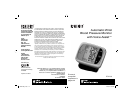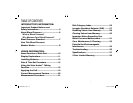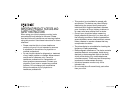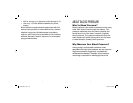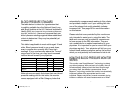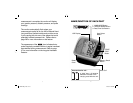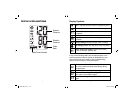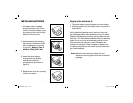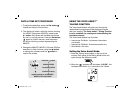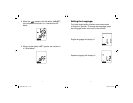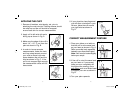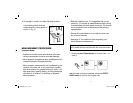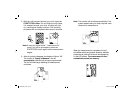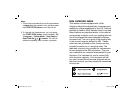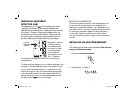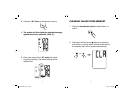
87
BLOOD PRESSURE STANDARD
The table below is criteria for hypertension that
is publicly available from the National Heart Lung
and Blood Institute at the U.S. National Institutes of
Health (NIH) (http://www.nhlbi.nih.gov/health/dci/Diseases/
Hbp/HBP_WhatIs.html)
. Users can compare their own
blood pressure readings against these established
criteria to determine if they may be potentially at
increased risk.
This table is applicable to most adults aged 18 and
older. Blood pressure tends to go up and down,
even in people who normally don’t have high
readings. If your numbers stay above the “normal”
range most of the time, you may be at increased
risk and should consult your physician.
Although one can easily find where their own blood
pressure readings fall on this table, this monitor
comes equipped with a Risk Category Index that
automatically compares each reading to this criteria
and provides a helpful cue if your reading falls into
one of the stages that could potentially indicate
increased risk. See page 26 for more information
on this feature.
Please note that cues provided by this monitor are
only intended to assist you in using this table. The
table and cues are only provided for convenience
to have access to the NIH information. They are
not a substitute for a medical examination by your
physician. It is important for you to consult with your
physician regularly. Your physician will tell you your
normal blood pressure range as well as the point at
which you may actually be considered to be at risk.
HOW THIS BLOOD PRESSURE MONITOR
WORKS
This monitor uses Smart Measure™ technology to detect
your blood pressure. With one touch of a button, the cuff
will automatically inflate to block the blood flow through
your artery. Next, the deflation process starts. Smart
Measure™ technology enables the monitor to automatically
inflate and deflate at the appropriate level for each
individual. Please note that any muscle movement during
inflation or deflation will cause measurement error. When
Category
Systolic (mmHg) Diastolic (mmHg)
Normal Less than 120 and Less than 80
Prehypertension 120-139 or 80-89
High Blood Pressure
Stage 1 140-159 or 90-99
Stage 2 160 or higher or 100 or higher
BPW-260_A.indd 7-8BPW-260_A.indd 7-8 12/7/09 4:48 PM12/7/09 4:48 PM



